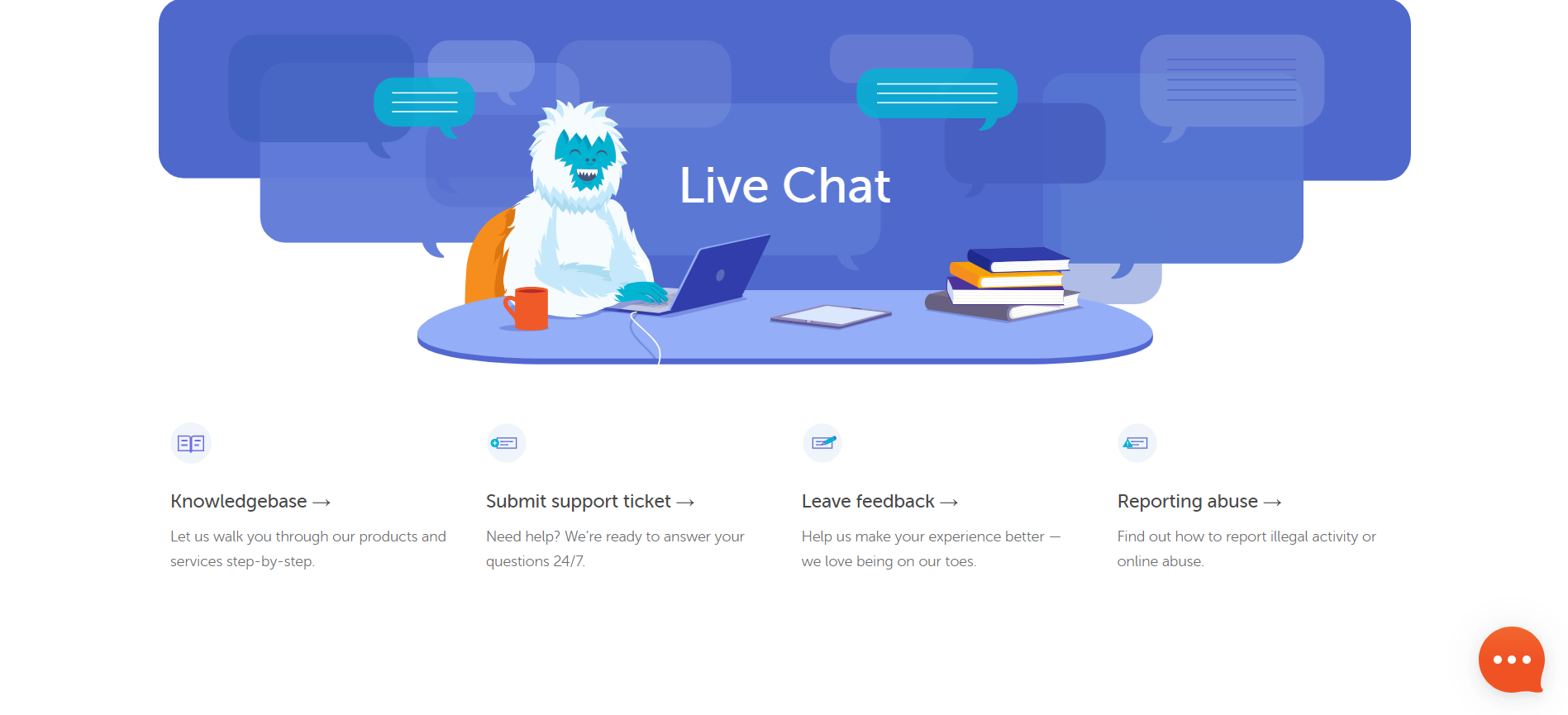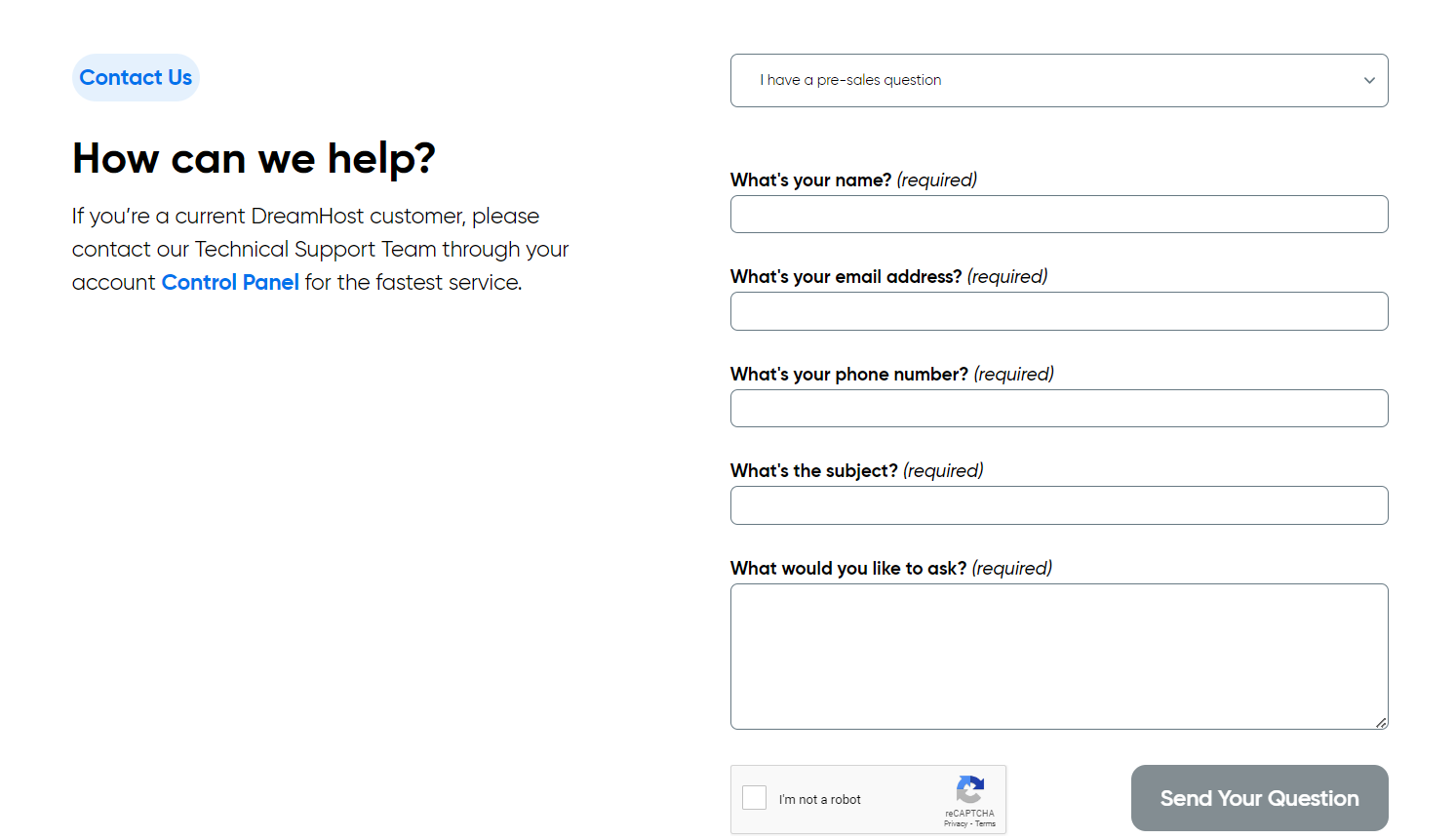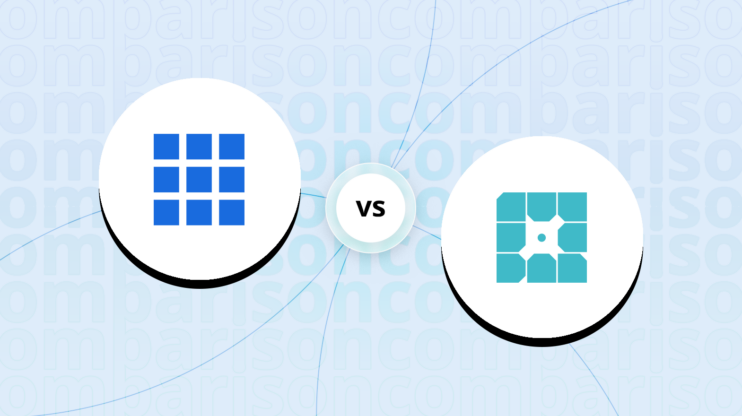Namecheap vs Dreamhost: Final verdict
Looking over Namecheap vs. DreamHost, both offer quality hosting services with their distinct strengths and weaknesses.
-
DreamHost (Overall grade: 8.2)
provides a wide array of hosting options, including cloud hosting, making it versatile for various user needs. It excels in reliability with a 100% uptime guarantee, consistent performance, and fast response times, making it a top choice for high-traffic websites and ecommerce businesses. DreamHost also provides comprehensive security features like multi-factor authentication and DDoS protection, ensuring robust operational security. However, it falls short with higher pricing for some plans and lacks a built-in website builder, which may be a drawback for beginners.
-
Namecheap (Overall grade: 7.2)
stands out for its affordability and comprehensive hosting plans. Its offerings are well-suited for users like agencies needing reseller hosting and multimedia websites, thanks to unmetered bandwidth and solid multimedia hosting capabilities. Namecheap also includes a user-friendly website builder, free SSL, and unlimited email hosting in its plans, adding significant value. However, its performance is slightly less reliable with occasional minor downtimes and slower response times compared to DreamHost. Nonetheless, Namecheap remains a strong contender, particularly for those seeking an economical yet feature-rich hosting service.
 Overall grade:7.2 |
 Overall grade:8.2 |
|
|---|---|---|
| Uptime and Availability | 8.0 | 8.5 |
| Hosting Performance | 8.2 | 7.8 |
| Hosting Security | 8.5 | 7.8 |
| Price | 8.7 | 8.2 |
| Hosting Features | 7.5 | 7.9 |
| Ease Of Setup | 8.8 | 8.9 |
| User Management | 0.0 | 8.1 |
| Customer Support | 8.0 | 8.3 |
| User feedback | 4.3/5 | 4/5 |
Hosting types offered
Both platforms provide a variety of hosting types, each designed to meet the different needs of users.
 |
 |
|
|---|---|---|
| Shared hosting | ||
| Cloud hosting | ||
| WordPress hosting | ||
| Ecommerce hosting | ||
| VPS hosting | ||
| Dedicated hosting |
Although both offer a variety of hosting plans tailored to different needs, in
certain cases, one platform may prove to be more suitable.
Detailed comparison
Uptime and availability
Evaluates the average uptime statistics, uptime guarantee and overall availability of the hosting
provider
Score Components:
- Uptime percentage (30%): evaluates the uptime statistics in given period of time
- Uptime guarantee (20%): Assesses if the platform offers an uptime guarantee and
whether the actual uptime matches the promised guarantee. - General performance (25%): Evaluates how fast is the average response time and overall
it’s stability. - Responsiveness (10%): Adaptability to different devices and screen sizes.
- Availability (25%): Reflects the total downtime and number of outages.
 8.0
8.0
 8.5
8.5
Winner DreamHost: Reliable and fast with a strong uptime guarantee.

DreamHost emerges as the more reliable provider, offering a strong 100% uptime guarantee backed by consistent performance across multiple tests. During assessments, DreamHost has demonstrated excellent stability and minimal downtime. The provider also excels in response times, which are considerably faster than Namecheap in most tests. Combined with its efficient server speeds and successful stress tests, DreamHost ensures a dependable hosting experience.

Namecheap presents a solid option for hosting needs with its varied guarantees and generally high uptime performance. The company offers a 100% uptime guarantee for most of its hosting plans and a notable 99.96% average uptime based on tests. However, actual performance varies with some occasional minor downtimes recorded. The response times are adequate but don’t lead the industry, making Namecheap a trustworthy but not top-tier choice.
Which one has better hosting performance?
Score Components:
- Hosting speed (30%): This includes SSD quality, Load times, PageSpeed score ranges,
additional information on website speed, built-in plugins for performance enhancement, available caching
methods, and CPU/RAM options - CDN (20%): Considers whether CDN is available or not, whether it’s free or paid, and
the quality of the CDN service - Available data centers (30%): Evaluates the number of data centers and their locations
globally. - Scalibility (20%): Looks at whether elastic scaling is available, the process required
to scale (manual upgrade vs. automatic scaling), the presence of dedicated servers, and the costs
associated with scaling.
 8.2
8.2
 7.8
7.8
🏆 Winner
Namecheap: versatile hosting solutions with great performance.
Namecheap and DreamHost both offer high-quality hosting services, yet Namecheap edges out slightly in several areas. Namecheap provides a solid 99.9% uptime guarantee across all plans, while DreamHost boasts a 100% uptime backed by their robust infrastructure. Namecheap leverages SSD storage across all hosting types, including shared, VPS, and reseller options, and offers faster website load times than DreamHost, boasting fully loaded times as low as 0.7 seconds. DreamHost offers SSD storage with a performance boost of 200% over traditional drives and includes NGINX hosting for efficient concurrent connections. Namecheap includes a free CDN with its EasyWP WordPress Hosting, while DreamHost doesn’t specify this feature. Namecheap’s data centers span the US, UK, and EU, whereas DreamHost doesn’t provide specific datacenter locations but ensures multiple backups and redundant cooling.
Website speed
When it comes to website speed, Namecheap’s EasyWP WordPress Hosting impresses with fully loaded times of 0.7 seconds and a Time to First Byte (TTFB) of 192 milliseconds. Their 3x faster performance claim compared to traditional hosting further highlights their speed edge. DreamHost’s performance also benefits from built-in server-level caching and SSD storage, enhancing speed, although specific metrics are not provided. DreamHost’s use of NGINX for handling multiple concurrent connections complements their performance features, while Namecheap’s free CDN inclusion aids in faster content delivery.
Scalability
Namecheap offers several options for scalability, including VPS and reseller plans that range up to 240 GB SSD storage and 8-core CPUs. Scalability requires upgrading plans manually. DreamHost offers automatic scalability with expandable RAM and storage, ensuring that resources match the growing needs without requiring plan changes. They also provide dedicated hosting options starting at $199.00 monthly, indicating a higher cost for those scaling significantly. Both providers include various pricing tiers to accommodate growing site needs, though DreamHost provides more seamless scaling flexibility.
Which one has better security features?
and regulatory requirements
Score Components:
- Technical security measures (40%): This includes encryption, firewalls, DDoS
protection, secure configurations, server monitoring, access control and availability of security addons
(e.g Sitelock security). - Operational security measures (30%): Encompasses data privacy, backups and data
redundancy. - Compliance and certifications (20%): Adherence to legal and regulatory requirements
(e.g., GDPR, HIPAA) and possession of certifications (e.g., ISO 27001, SOC 2). - Business and reliability (10%): Factors in the provider’s reputation, uptime
guarantees, and customer support.
 8.5
8.5
 7.8
7.8
🏆 Winner
Namecheap: A robust suite of security features and customer-centric support.
Both Namecheap and DreamHost, have notable differences in their approaches to technical and operational
security, as well as in their compliance with regulations.
Technical security measures:
Namecheap offers a wide variety of SSL certificates, including Domain Validation (DV), Organization Validation (OV), Extended Validation (EV), Single Domain SSL, Wildcard SSL, and Multi-domain SSL, while DreamHost provides free Let’s Encrypt SSL certificates and the option to purchase professionally-signed certificates. Namecheap supports PHP versions from 5.X to 8.X, whereas DreamHost also supports current PHP versions, including PHP 8, and includes OPcache for improved performance. As additional security features, Namecheap offers two-factor authentication (2FA), premium DNS, and firewall measures such as SPF and Domain Keys, along with a virus scanner. DreamHost, on the other hand, provides multi-factor authentication (MFA), DreamShield malware scanning, and DDoS protection.
Operational security measures:
Namecheap includes two-factor authentication (2FA), domain privacy, and a comprehensive set of security tools like ClamAV™ Virus Scanner, BoxTrapper, and Jellyfish Spam Protection. DreamHost offers multi-factor authentication (MFA) and additional features like password protection via .htaccess, SSH access, SFTP, and malware scanning with DreamShield. Both services ensure secure data management with RAID 1 storage and secure file transfers. Namecheap enhances its operational security with features like fast VPN and leech protect for login attempt control, while DreamHost handles automatic software updates for enhanced security.
Compliance and certifications:
Both Namecheap and DreamHost are GDPR compliant, providing users with rights such as data access, rectification, and the right to be forgotten. Namecheap covers additional data protection rights like the right of portability and the right to object to data processing. Namecheap does not specify its stance on PCI compliance but offers various features that aid in meeting security standards. DreamHost is PCI compliant for its servers but requires customers to obtain their own PCI certification. DreamHost specifies non-compliance with HIPAA, while Namecheap does not specify HIPAA compliance.
 |
 |
|
|---|---|---|
SSL certificate |
Multiple types available |
Free Let’s Encrypt, purchase options |
Additional security features |
2FA, premium DNS, virus scanner |
MFA, DreamShield, DDoS protection |
PHP versions |
5.X to 8.X |
Current versions, includes OPcache |
GDPR compliance |
Yes |
Yes |
HIPAA compliance |
Not specified |
Not compliant |
PCI compliance |
Not specified |
Servers compliant, customer responsibility |
Hosting features
Score Components:
- Domains (20%): Assesses the availability of a free domain, domain purchase options, and
pricing - Email (15%): Considers if the provider offers full email hosting, or is reselling
third-party service, and if the email is only transactional or not - Website builder (15%): Checks if website builder is available, and it’s user
friendliness and overall the level of customization allowed. - Staging environment (20%): Determines if a staging environment is available, allowing
for testing changes before going live. - FTP & SFTP accounts (10%): Evaluates if and how easily users can access FTP and
SFTP accounts - Git and SSH access (20%): Assess whether Git is integrated into the hosting service and
if SSH access is provided
 7.5
7.5
 7.9
7.9
🏆 Winner
DreamHost: Reliable and comprehensive hosting services.
Namecheap and DreamHost both offer appealing hosting packages, but their unique features set them apart for different user needs. Namecheap provides a user-friendly website builder with all its shared hosting plans, making it easy for beginners to create websites without technical skills. Their shared plans are affordable, starting from $1.98/month, and include valuable perks like 50 free PositiveSSL certificates for the first year. Namecheap also excels in email services, offering unlimited mailboxes and spam protection features like Jellyfish Spam Protection and SpamAssassin.
DreamHost, on the other hand, includes unlimited storage on its shared plans and free domain registration, which can be a significant benefit for new site owners. DreamHost’s Managed WordPress hosting plans are robust, featuring automated backups, built-in caching, and a one-click staging environment. This makes DreamHost a suitable choice for users looking for high performance and ease of migration. DreamHost’s commitment to security and privacy, with features like Multi-Factor Authentication and free WHOIS privacy protection, adds another layer of appeal, especially for users concerned with privacy and data protection.
 |
 |
|
|---|---|---|
Free domain |
No |
Yes |
Free SSL |
50 free PositiveSSL for one year |
Yes |
Email hosting |
Yes |
Yes |
Website builder |
Yes |
No |
Staging environment |
No |
Yes |
FTP & SFTP accounts |
Yes |
Yes |
Git and SSH access |
Yes |
Yes |
Free backup |
Yes, for Stellar Plus and Business plans. |
Yes, for all plans |
Money back guarantee |
30 days |
30 days |
a location.
As a result in rare cases the features mentioned here can differ from the ones you see on their websites.
Both providers support a range of users from beginners to experts with user-friendly website builders and WordPress staging areas. However, in terms of developer tools, both Namecheap and DreamHost offer robust options including SSH access, support for multiple programming languages, and Git for version control, thus appealing to developers looking for advanced capabilities.
Email services:
Email services at Namecheap’s email hosting includes features like unlimited mailboxes for Stellar Plus and Business plans, spam protection, and support for standard protocols. DreamHost also offers email hosting with professional email addresses and privacy protection but doesn’t emphasize transactional email capabilities as much. Both providers allow users to set up email campaigns, though Namecheap’s comprehensive spam protection features might give it an edge in reliability.
Price
Score Components:
- Plan value (40%): What each pricing tier offers.
- Transparency and clarity (30%): Clearness of pricing structures.
- Flexibility of plans (20%): Range of options to suit different budgets.
- Hidden costs (10%): Additional expenses not included in the plan.
 8.7
8.7
 8.2
8.2
🏆 Winner
Namecheap: Namecheap offers a variety of hosting plans with competitive pricing and comprehensive features.
Evaluating the pricing of plans among various hosting providers can be complex due to their differing pricing and renewal strategies. Additionally, certain plans require annual commitments, which adds to the difficulty of making comparisons. The prices listed are based on monthly commitments; plans requiring annual commitments are indicated. Additionally, although some providers offer identical plans for WordPress and shared hosting, we have created separate tables for each to enhance clarity.
Comparing Namecheap and DreamHost reveals that both providers offer a wide array of hosting options, yet Namecheap generally provides more affordable plans across all categories. Namecheap’s shared hosting plans start at $1.98 per month, whereas DreamHost begins at $2.59 per month. For WordPress hosting, Namecheap’s EasyWP Starter is $2.91 per month, contrasting with DreamHost’s DreamPress at $16.95 per month. Regarding cloud hosting, DreamHost’s DreamCompute is available at $0.0075 per hour, with Namecheap’s rates provided under specific configurations. Namecheap further distinguishes itself with features that include a more comprehensive email package, additional automatic backups, and free website migration, making it a balanced choice for both budget-conscious users and those seeking a feature-rich hosting experience.
 |
 |
|---|---|
|
EasyWP Starter $6.88
1 WordPress website, 10 GB SSD, 50k visitors/month, Free CDN, Free SSL, Hosted on Namecheap Cloud, 99.9% Uptime, Easy backups and restores, SFTP & DB access. Value for price:8.7
|
DreamPress $19.99
1 WordPress website, 30GB SSD, ~100K monthly visitors, Unmetered bandwidth, Free domain registration, Built-in caching, Automated daily backups, 24/7 WordPress specialized support. Value for price:8.2
|
|
EasyWP Turbo $12.88
1 WordPress website, 50 GB SSD, 200k visitors/month, Free CDN, Free SSL, Hosted on Namecheap Cloud, 99.9% Uptime, Easy backups and restores, SFTP & DB access. Value for price:8.7
|
DreamPress Plus $34.99
1 WordPress website, 60 GB SSD, ~300K monthly visitors, Unmetered bandwidth, Free domain registration, Built-in caching, Automated daily backups, 24/7 WordPress specialized support. Value for price:8.2
|
|
EasyWP Supersonic $19.88
1 WordPress website, 100 GB SSD, 500k visitors/month, Free CDN, Free SSL, Hosted on Namecheap Cloud, 99.99% uptime, Easy backups and restores, SFTP & DB access, 2x more CPU. Value for price:8.7
|
DreamPress Pro $89.99
1 WordPress website, 120GB SSD, ~1M monthly visitors, Unmetered bandwidth, Free domain registration, Built-in caching, Automated daily backups, Priority support. Value for price:8.2
|
 |
 |
|---|---|
|
Stellar $4.48
3 Websites, 20 GB SSD, Free domain name (1st year), Free automatic SSL, Free CDN, Free website migration <24 hours, Website Builder, 30-day money-back. Value for price:8.7
|
Shared Starter $5.99
1 Website, Unlimited storage, Free domain registration, Free SSL, Automated daily backups, 24/7 support. Value for price:8.2
|
|
Stellar Plus $6.48
Unlimited Websites, Unmetered SSD, Free domain name (1st year), Free automatic SSL, Free CDN, Free website migration <24 hours, AutoBackup, Website Builder, 30-day money-back. Value for price:8.7
|
Shared Unlimited $10.99
Unlimited Websites, Unlimited storage, Free domain registration, Free SSL, Automated daily backups, 24/7 support, Email hosting @ your domain. Value for price:8.2
|
|
Stellar Business $9.48
Unlimited Websites, 50 GB SSD, Free domain name (1st year), Free automatic SSL, Free CDN, Free website migration <24 hours, AutoBackup & Cloud Storage, Website Builder, 30-day money-back. Value for price:8.7
|
N/A |
 |
 |
|---|---|
| N/A |
DreamCompute $0.0075/hour
Scalable cloud computing, Root access, SSD storage, Blazing-fast networking, Open APIs via OpenStack, 24/7 support. Value for price:8.2
|
Enterprise plans
Namecheap provides enterprise solutions through its dedicated servers, which start at $44.88 per month, featuring full root access, customizable configurations, and various OS options. DreamHost’s enterprise plans include dedicated servers starting at $199.00 per month, boasting 6-Core CPUs, up to 32GB RAM, and a 100% uptime guarantee. Both providers offer scalable enterprise options, but Namecheap’s more affordable entry-level plans and flexibility make it a compelling choice for businesses seeking cost-effective yet powerful hosting solutions.
Namecheap vs Dreamhost: Ease of setup
platform.
Score Components:
- Site migration (25%): Assesses whether the provider offers tools for site migration,
either automated or manual, and whether these services are free or require a fee. - Admin panel usability (35%): Evaluates the type of admin panel provided, such as the
standard cPanel or a custom solution, focusing on its accessibility and user-friendliness for both
technical and non-technical users. - Setup features (20%): Examines the availability and ease of use of various setup
features, including FTP accounts, file managers, email account setup, PHPMyAdmin, and easy CDN
configuration. - Help center quality (20%): Measures the quality and accessibility of the provider’s
help center resources, including articles and tutorials.
 8.8
8.8
 8.9
8.9
🏆 Winner DreamHost: DreamHost facilitates an easy setup and provides extensive support resources to assist users in web hosting and site management.
Namecheap uses a customized EasyWP dashboard instead of the traditional cPanel for website management. This custom dashboard is tailored for simplicity and efficiency, making it convenient for users who may not be familiar with cPanel interfaces. EasyWP provides you with all necessary tools through a single interface, simplifying the process of managing your websites, backups, and domain connections. On the other hand, DreamHost offers a custom-built control panel that is designed to be user-friendly both for technical and non-technical users. This panel includes advanced features such as SFTP, Shell Access, and WP-CLI, providing flexibility and control over the hosting environment. The intuitive design ensures that tasks like account administration and site management are straightforward and quick to perform.
Both providers offer automated and manual migration tools. Namecheap provides a free migration service that works with any web host, including a seamless integration with the All-in-One WP Migration plugin for transferring WordPress sites. DreamHost allows users to migrate through its Migration Dashboard, which scans the website and presents various options for migration. Users can follow a guided process to complete the migration. DreamHost’s migration tools are easily accessible via their account panel, but the service involves steps like DNS pointing to make the site publicly accessible.
Namecheap provides a comprehensive Knowledgebase and Help Center accessible 24/7, including live chat support, a help desk, and a support ticket system secured by SSL encryption. The knowledgebase covers setup guides, troubleshooting, and FAQs. DreamHost offers similar extensive support through 24/7 sales chat, customer support chat through the panel, and email support. Their Knowledgebase is a large, searchable archive with WordPress guides, FAQ, and tutorials. Both providers offer continuous updates to their articles and tutorials to provide users with up-to-date information and support.
The platforms provide extensive knowledge bases filled with guides, how-to articles, and instructional content. Namecheap offers a wide range of resources alongside 24/7 chat and phone support. DreamHost also boasts a detailed help center with an intuitive search function and around-the-clock support via live chat, phone, and ticketing, ensuring comprehensive user support.
User management
accessibility.
Score Components:
- Role customization (40%): Flexibility in creating and defining user roles and
permissions. - Ease of management (30%): User interface and tools for managing users.
- Access control (20%): Effectiveness of access control measures for different user
levels. - Scalability (10%): Ability to manage a growing number of users efficiently.
 0.0
0.0
 8.1
8.1
🏆 Winner
DreamHost: Superior user management features and tools for seamless hosting administration.
DreamHost and Namecheap offer different experiences in managing user roles, permissions, and accessibility. While DreamHost provides a range of features like unlimited SFTP users, SSH access, and a Subversion repository, Namecheap does not provide detailed information on user management capabilities. DreamHost’s rich feature set allows for flexible and granular control, making it easier to manage multiple users and roles effectively.
DreamHost offers a custom-built control panel designed for intuitive use, making it easy to manage domains, mail, and security settings. The control panel integrates various management tools, providing a seamless experience for both novice and advanced users. Unfortunately, details about Namecheap’s user interface for managing user roles are presently unavailable, which leaves its capabilities in this area unassessable.
DreamHost’s access control measures are comprehensive, featuring password protection, crontab access, and the availability of raw log files for performance analysis. These features not only enhance security but also provide tools to manage a growing number of users efficiently. The flexibility and range of advanced features cater well to developers and large teams, ensuring that all user management needs are met.
DreamHost user roles table:
| Role | Description | Access highlights |
|---|---|---|
| SFTP User | Grants secure access to files via SFTP | Can upload, download, and manage server files in assigned directories. |
| SSH User | Provides secure remote access to server command line | Execute shell commands, manage server settings, and deploy applications remotely. |
| SVN User | Allows usage of Subversion for version control | Commit, update, and manage source code files within the repository. |
| Cron User | Access to schedule automated tasks with cron jobs | Can create, edit, and manage cron jobs to automate script execution or other command-line tasks. |
| Email User | Professional email services with extensive features | Access to @yourdomain email, 25GB storage, mobile and desktop sync, webmail, and spam filters. |
Customer support
hosting provider.
Score Components:
- Support communication channels (30%): Measures the variety of customer support types
provided (live chat, chatbot, email, phone, etc.) - Availability (20%): Assesses the availability hours for each channel, including 24/7
support options. - Technical support quality (30%): Assesses whether the provider offers comprehensive
technical support, including hardware upgrades (e.g., HDD to SSD), software installations, and web
server configuration changes. - Enterprise support (20%): Checks if there are dedicated or priority support services
for enterprise-level customers.
 8.0
8.0
 8.3
8.3
🏆 Winner DreamHost: DreamHost emerges as the winner with a comprehensive range of support options and strong customer feedback.
 |
 |
|
|---|---|---|
Phone support |
||
Live chat support |
||
Chatbot |
||
Email/ticket support |
||
Enterprise support (dedicated agent, priority support) |

Namecheap offers an extensive array of customer support options, including 24/7 live chat, a ticketing system, and a detailed knowledge base filled with a variety of resources. Customers can benefit from free website migration and responsive live chat support that is generally reported to be quick and professional. Despite not offering phone support, Namecheap’s overall customer service is well-reviewed for its friendliness and comprehensive resources.

On the other hand, DreamHost provides 24/7/365 support through multiple channels such as live chat, email, and a ticket system, with response times typically within minutes for live chat and an hour or two for tickets. While direct phone support is not available, callback services can be requested for an additional fee. DreamHost supports both English and Spanish and maintains a comprehensive knowledge base, cementing its strong position in customer support. Additionally, DreamHost offers a flexible 97-day money-back guarantee for shared hosting products, enhancing its appeal and reliability.
Namecheap vs Dreamhost: User feedback
Namecheap is widely appreciated for its affordability, reliability, and high-quality customer support. Users commend the availability of free SSL certificates, user-friendly cPanel, and outstanding hosting speed. However, shared hosting speed and the occasional slow response from support are noted concerns. Despite these minor drawbacks, Namecheap remains a popular choice for beginners and small to medium businesses due to its competitive pricing and satisfactory service quality.
DreamHost is a well-regarded hosting provider praised for its reliability, affordable pricing, user-friendly interface, and excellent performance. Users especially appreciate the responsive customer support, the easy navigation of the web portal, and a variety of hosting options suitable for different needs. However, common criticisms include the lack of phone support, occasional slow response times from customer service, and some challenges related to advanced functionalities and site migrations. While the majority of users report positive experiences, a few have faced significant issues with downtime and customer service, impacting their overall satisfaction.
Namecheap vs Dreamhost: FAQ
Which platform is better suited for hosting WordPress websites?
Both Namecheap and DreamHost offer strong managed WordPress hosting solutions. They include intuitive dashboards and WordPress pre-installed, making them excellent choices for WordPress sites. Although Namecheap provides more affordable plans, DreamHost’s higher-end packages come with additional features like built-in caching and automated backups. The choice would depend on specific needs such as budget and required features.
Are both platforms suitable for beginners?
Both Namecheap and DreamHost are suitable for beginners, though Namecheap has a slight edge due to its user-friendly website builder included in all shared hosting plans. Namecheap also offers affordable starting plans with a variety of features like free SSL and website migration, making it appealing for those new to hosting. DreamHost, while slightly more expensive, provides a well-designed custom control panel that simplifies site management and includes helpful resources for beginners.
Which hosting service offers better security features?
DreamHost provides robust security measures, including multi-factor authentication (MFA), DDoS protection, and DreamShield malware scanning. Namecheap also offers comprehensive security features like two-factor authentication (2FA), premium DNS, and virus scans, along with a wide variety of SSL certificates. While both services offer extensive security measures, DreamHost has a slight edge due to its advanced security features and commitment to protecting user data.
Which hosting service offers more scalability options for growing websites?
DreamHost offers automatic scalability with expandable RAM and storage without requiring manual plan changes, making it highly suitable for growing websites. Namecheap provides several options for scalability, including VPS and reseller plans, but these require manual upgrades as resource needs increase. DreamHost’s seamless scaling flexibility and dedicated hosting options give it an advantage for users seeking effortless growth as their website demands escalate.
Which platform offers better customer support?
Both Namecheap and DreamHost offer extensive customer support, including 24/7 live chat, email/ticket support, and comprehensive knowledge bases. DreamHost typically provides faster response times and has the added benefit of a flexible 97-day money-back guarantee for shared hosting products. While both have solid support systems, DreamHost’s overall customer feedback and additional support features give it a slight edge in customer support quality.
The making of this blog
We followed a clear, step-by-step process to write and research this article.









